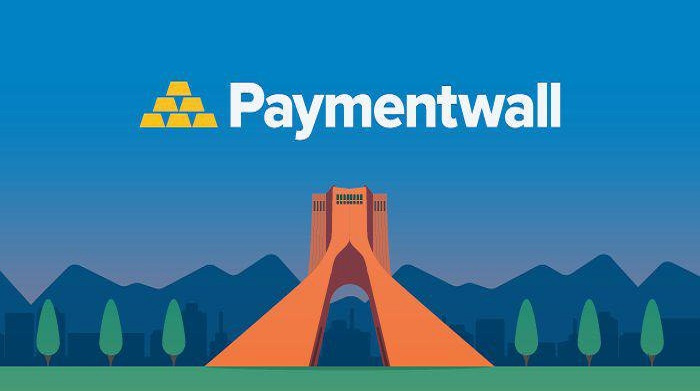Paymentwall Withdraws Decision for Iran Partnership Overnight

Hessam Emami
Paymentwall has integrated Iran’s local payment system, following the relief of economic sanctions from the country, according to a press release issued on Tuesday. The news posted on a Paymentwall blog and its Twitter account, decorated with a symbolic landmark of Azadi tower under the firm’s logo, immediately sparked hopes for many Iranian media-savvy online users who innocently thought they could join the world economy after decades of isolation.
Paymentwall, headquartered in San Francisco, has partnerships with over 140 payment method providers worldwide to offer global payments coverage for users in more than 180 countries.
Paymentwall’s statement said it had integrated the Shetab, Iran’s Interbank Information Transfer Network System. Shetab is a unified, electronic clearance system for the entire Iranian banking operations that allows it to facilitate transactions from credit cards, ATMs and point-of-sale (POS) terminals. Shetab also allows debit and credit cards to be accepted at any ATM or POS terminals in the country, and even in online payment portals. According to the press release, through the Shetab, “merchants can now tap into the Iranian marketplace, and widen the demand for their businesses”. The breakthrough could multiply flow of money to and away from the country after years even by the general public that seems at odds with the Iranian banking system’s control-freakish attitude to oversea transactions.
“Iran has promising potential to become a fertile ground for online businesses worldwide,” said David Ricart, Payment Project Manager of Paymentwall. “Shetab has paved the way for them and streamlined the process of online transactions.”
Iran is now one of the countries with the highest debit card penetration rate at 92%, according to Techrasa.com citing data from E-Commerce Monitor (ECM). In addition, monthly online transactions in the country have grown 15% from 2015 to the present time as more customers use their debit and credit cards to pay online.
Iran’s potential re-entry into global commerce is expected to see businesses rushing in to the country and claim their stake there. “To stay ahead of the competition, merchants should understand the needs of the local marketplace first, to effectively build demand for their digital goods or services,” Ricart said. According to the statement later deleted, “merchants will be able to accomplish this by using a payment system that their customers are already familiar with and accepting payments in their local currency”. For merchants who want to expand their businesses in Iran, Paymentwall said it would provide them with a strategic approach to grow successfully in this new marketplace.
Should the one-night stand carry a promise of future, the break-up can bring to mind one certain implication. Recent statements made yesterday by the US Treasury Secretary Jacob Lew seems the main obstacle to the realization of the dream. During a speech at the Council on Foreign Relations, Lew said the US banking system remains “not open to Iran” in spite of the fact that nuclear-related sanctions have been lifted. “The U.S. financial system is not open to Iran and that is not something that is going to change,” he said while stressing the US will remain committed to its part of the bargain under the JCPOA. “There still are other sanctions in place and navigating through that is going to be a challenge,” he was reported as saying during a conversation at the US Council on Foreign Relations.
Rouhani’s administration has come under unprecedented fire by critics following the nuclear deal on the grounds that the lifting of sanctions under the JCPOA has failed to show any sign of improvement for the country’s struggling economy. Although the criticisms have largely been politically driven to dent Rouhani’s popularity in fear of his likely reelection, the sluggish advances made in Iran’s efforts to rejoin the global economy and more significantly absorb foreign investments have also concerned top officials. Supreme Leader Ayatollah Ali Khamenei has also repeatedly expressed his dissatisfaction with the economic status after the culmination of the nuclear deal, with the most recent instance coming in a meeting with Italian Prime Minister Mr. Matteo Renzi on Tuesday. “The main problem and the most important weakness with the recent travels by European delegations to Iran was a lack of tangible practical results after bilateral negotiations,” he was quoted as saying by his official website, Leader.ir.
Foreign investors are intimidated with what seems to be lack of stability in Iran’s relations with the West, heightened with the country’s recent ballistic missile tests. Tehran has made it clear that its missiles program is an indispensable and non-negotiable part of its defensive power, never to be withdrawn. While Western officials have warned to use the ballistic missile test as a pretext for new sanctions, restrictions still in place in US regulations regarding business with Iran have impeded the latter’s bid to use assets previously frozen in US banks as fresh blood in the economy to create jobs and exit the current stagnation.

